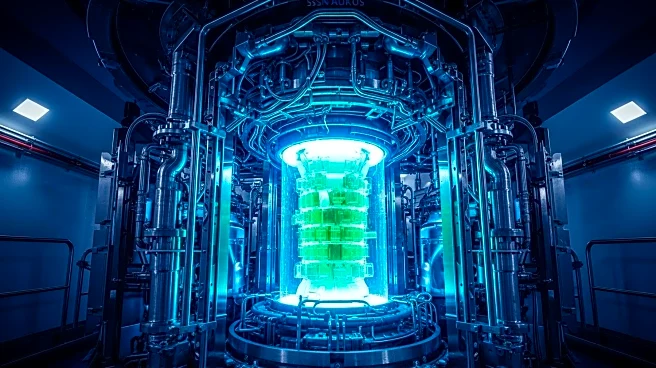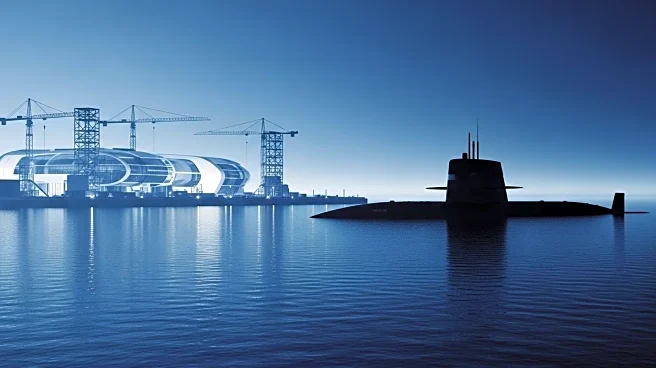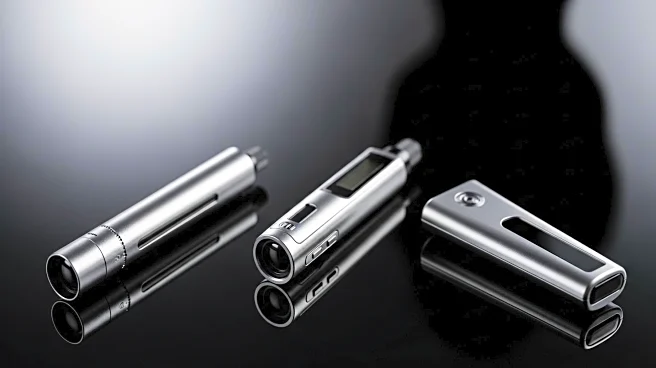What's Happening?
Supacat, a company known for its Jackal family of vehicles, is strategizing to maintain production of the Jackal 3 High Mobility Transporter (HMT) despite uncertain future orders from the UK. Toby Cox, head of sales at Supacat, discussed the company's efforts during the DSEI 2025 event in London. Supacat has invested significantly in setting up production lines at Babcock's Devonport site, where 62 out of 70 4x4 Jackal 3 units are being produced, with delivery expected by the end of 2025. Additionally, Babcock is constructing 53 'Extenda' 6x6 Jackal 3 vehicles, slated for delivery in early 2026. Supacat is exploring alternative revenue streams, including refurbishing older Jackal models, to sustain its workforce and production capabilities.
Why It's Important?
The continuation of Jackal 3 production is crucial for Supacat and its workforce, as the company faces potential job threats if production does not persist. The Jackal 3, with its enhanced crew protection and load capacity, represents a significant investment in military vehicle technology. The uncertainty surrounding UK orders highlights the challenges faced by defense contractors in securing long-term contracts. Supacat's efforts to refurbish older models and explore international deals, such as a potential contract with the Czech Republic, could mitigate risks and expand its market presence. This situation underscores the broader implications for the defense industry, where companies must adapt to shifting government priorities and international opportunities.
What's Next?
Supacat is actively pursuing international contracts, including a government-to-government deal with the Czech Republic for 18 Extenda units, expected to begin delivery in 2026. The company is also in discussions to refurbish legacy Jackal vehicles, potentially offering them as cost-effective solutions to other nations. These efforts could provide Supacat with new revenue streams and help maintain its production lines. The British Army's Land Mobility Programme, aimed at reducing vehicle types, presents a long-term opportunity, although it is still in its early stages. Supacat's strategic focus on international markets and vehicle refurbishment may be key to sustaining its operations amid domestic uncertainties.
Beyond the Headlines
Supacat's situation reflects broader trends in the defense industry, where companies must navigate complex procurement landscapes and adapt to evolving military needs. The emphasis on refurbishing older vehicles highlights a growing interest in sustainable practices and cost-effective solutions. Additionally, the potential Czech contract illustrates the importance of international collaborations in expanding market reach. As defense budgets fluctuate, companies like Supacat must balance innovation with practical solutions to remain competitive. This scenario also raises questions about the long-term viability of domestic defense manufacturing and the role of international partnerships in sustaining industry growth.










